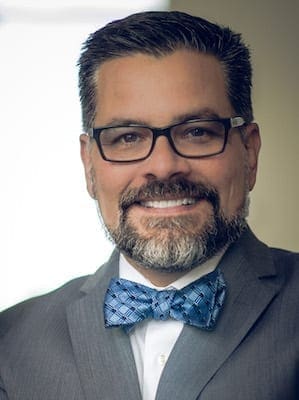New York and Virginia have been embroiled in a heated debate over abortion in recent weeks.
New York just enacted the Reproductive Health Act while Virginia is currently considering similar legislation.
Both bills reignited a historical firestorm. Conservatives claim abortion is murder, while liberals argue the issue is more complex and addresses women’s health.
The purpose of this editorial is not to discuss the details of these laws, cast judgment on anyone from either group or provide a theological framework addressing abortion.
Instead, I wrote today’s editorial primarily for men. In our patriarchal society, it seems men often try to commandeer the debate concerning abortion and women’s health. We men need to listen to women with open ears and open hearts.
Proverbs 12:15 reminds us, “Fools think their own way is right, but the wise listen to advice.” Here are five practices to help embody this wisdom:
- Listen to women.
Within the heated conversation about abortion, the most important and needed voices are often muffled because of a patriarchal framework.
As a man, try as I may, I have no idea what women must think through when faced with health decisions.
Therefore, we need to listen to women. We need to genuinely hear their stories, embracing them as the human narrative that chronicles the complex issue of abortion.
Some women have chosen abortion for any number of reasons, and some have not for any number of reasons. In any case, these stories are some of the most significant and critical contributions to this debate.
When Jesus encountered women in his ministry, he listened to their stories. In the Gospel of John, he heard the Samaritan at the well (John 4), knew the real story behind the woman charged with adultery (John 8) and identified Mary Magdalene as the perfect person to empower with the news of resurrection morning (John 20).
Women possess phenomenal voices that demand to be heard. As Maya Angelou wrote, “I’m a woman, Phenomenally. Phenomenally woman, That’s me.”
- Listen without speaking.
James 3:8 calls the human tongue “a restless evil, full of deadly poisons.” Instead of listening to form a counter opinion or insult a person on social media, maybe we need to open our minds to each other. We need to really listen with the goal of hearing the other person.
G.K. Chesterton wrote, “There is a lot of difference between listening and hearing.” When we listen with tongues at the ready, we rarely hear what is being said.
However, if we listen with quiet tongues and open hearts, we create an environment for the other person to be heard.
- Listen without judging.
When we silence our tongues to open our ears, we also open our souls to receive stories, convictions and truths outside the bounds of contentious debate. This leads to listening without judgment.
Jesus declared, “Do not judge, so that you may not be judged” (Matthew 7:1). Those are good words, but Jesus went on to ask a more pointed question: “Why do you see the speck in your neighbor’s eye, but do not notice the log in your own?”
In a culture that seems to value judgmentalism, we all would be wise to heed these words.
To listen without judging gives the person talking permission to speak honestly without the worry of being immediately judged.
Listen to Brené Brown’s insights from her book, “The Gifts of Imperfection.” “Perfectionism is a self-destructive and addictive belief system that fuels this primary thought: If I look perfect and do everything perfectly, I can avoid or minimize the painful feelings of shame, judgment and blame.”
By eliminating the barrier of judgment, genuine and authentic conversation can take shape. This type of discussion is significantly more productive than shouting at each other from across protest lines.
- Listen to doctors.
As politicians, preachers and pundits pontificate on the abortion debate, we must not forget to hear the voices of doctors.
They are the professionals who genuinely deal with life and death each day, practicing an incredibly strenuous profession. The circumstances they work within are difficult for the layperson to imagine.
Again, the author of Proverbs provides guidance: “Wisdom cries out in the street; in the squares, she raises her voice” (Proverbs 1:20).
Let us heed advice from the most learned of professions when it comes to making decisions about life and death. Their words and insights will be most valuable.
- Listen with divine ears, not human.
Finally, the Christian community must learn to listen with divine ears. So often, we hear through our human ears, jaded from political influences and preconceived stereotypes.
We fail to hear the human story or see the human standing before us. More than anything, we are guilty of placing filters on our ears and blinders on our eyes.
As Jesus began his ministry, two overarching philosophies influenced his encounters with people: the Great Commandment and the Beatitudes in the Sermon on the Mount.
So, once again, let us be reminded of their eternal value.
Love God with all your heart, mind and soul … love your neighbor as yourself.
Blessed are the poor in spirit, for theirs is the kingdom of heaven.
Blessed are those who mourn, for they will be comforted.
Blessed are the meek, for they will inherit the earth.
Blessed are those who hunger and thirst for righteousness, for they will be filled.
Blessed are the merciful, for they will receive mercy.
Blessed are the pure in heart, for they will see God.
Blessed are the peacemakers, for they will be called children of God.
Blessed are those who are persecuted for righteousness’ sake, for theirs is the kingdom of heaven.
Blessed are you when people revile you and persecute you and utter all kinds of evil against you falsely on my account. Rejoice and be glad, for your reward is great in heaven, for in the same way, they persecuted the prophets who were before you.
And if I may add one more …
Blessed are those who can silence themselves long enough to hear another, for they will be granted wisdom and a shared moment between God’s children.


